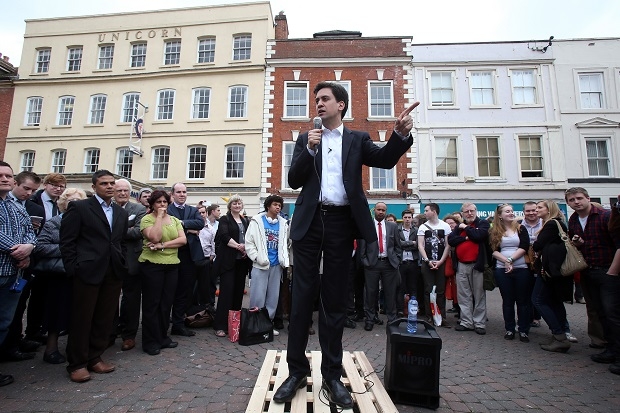Ed Miliband and Harriet Harman are keen to encourage unity at the TUC conference this week, while giving the impression they are determined to forge ahead with reforming the union link to the Labour party. Harman’s speech to the TUC dinner will include a call for unity and an attempt to explain the need for the reforms. She will say:
‘Ours is a deep-rooted and historic link but it is a relationship which has never been set in stone and is always changing. But, the thing that has endured is that our unity is the bulwark against reaction and the only hope for progress.
‘I am proud of the link between the Labour party and the trade unions. I do not want it weakened. Nor does Ed. We want to see it strengthened and deepened. That is what is at the heart of our plans for party reform.’
She will add that ‘the Labour party and the trade union movement has nothing to lose – and everything to gain from a more meaningful, direct relationship with actual members’. Which isn’t strictly true, as the decisions by the GMB and Unison about cutting affiliation funds to the party have shown.
But while Len McCluskey sounded considerably less wounded in his broadcast tour over the weekend, he still reminded Ed Miliband of the need to make Labour more attractive to union members. The Labour leader’s planned crackdown on zero hours contracts is clearly one way of doing that. In his own speech to the TUC, he is expected to announce plans to limit the ‘exploitative use’ of zero hours contracts, which will please the unions. His new limits would include:
- Preventing employers from insisting that staff be available even when there is no guarantee of any work.
- Banning contracts that tie workers exclusively to one company.
- Ending contracts where staff are working regular hours over a sustained period, but without the rights.
But he can’t ban them for two reasons. The first is one Angela Eagle put her finger on when she appeared on Pienaar’s Politics yesterday morning: that banned zero hours contracts might be replaced by new ‘one hour contracts’. The second is that the workforce needs to be flexible to foster a recovery – and to keep people in jobs while things remain stretched. That’s why employers would simply opt for the second best type of flexible contract if Miliband banned the current arrangements outright. But he knows that these contracts upset trade unionists, and while he can’t go as far as they might like him to, he needs to show that he wants to create a Labour party that they at least will find attractive. But it also opens him to the charge from the Tories that while he might be changing the formal link, he’s still making policy to Len McCluskey’s tune.







Comments